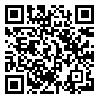BibTeX | RIS | EndNote | Medlars | ProCite | Reference Manager | RefWorks
Send citation to:
URL: http://irancounseling.ir/journal/article-1-525-en.html
Purpose: This study was carried out in order to compare and examine the effect of Positive Parenting Program (Triple P) training and Parent Management Training (PMT) on the children’s behavioral problems and the parents’ parenting style.
Methods: The present research was a quasi-experimental study using a pretest-posttest-follow up design with a control group. The study population consisted of all children with behavioral problems and their parents, in the elementary schools in city of Sanandaj in 2016. Ninety individuals were selected through multi-steps random sampling method. Participants were administered Conners Children’s Behavior Questionnaire (1990) and the Alabama Parenting Styles and Dimensions Questionnaire (PSDQ - 1996) in three phases. Parent management training was done in twelve 40-60 minute sessions, while positive parentling was done in eight 2 hour sessions, both for the two experimental groupsResults: In comparison to Triple P training method, PMT method had a higher effect on conduct, pro-social, psychosomatic, and shame-anxiety problems (p<0.01). PMT treatment had a higher effect on each dimension of positive parenting, warmth and involvement, physical coercion, and poor supervision, compared to Triple P treatment (p<0.01). After one month, the results of the follow-up indicated that there was a difference between the experimental and control groups in terms of behavioral problems and parenting style, and the effectiveness of the two treatment methods on behavioral problems and positive parenting was maintained after one month (p<0.01). Conclusion: The results of the present study showed that PMT method had a higher effect on behavioral problems, and Triple P had a higher effect on dimensions of parenting. These results are useful for psychotherapists and counselors with regard to selecting the type of intervention.
Received: 2017/01/23 | Accepted: 2017/11/16 | Published: 2017/11/16
| Rights and permissions | |
 |
This work is licensed under a Creative Commons Attribution-NonCommercial 4.0 International License. |




